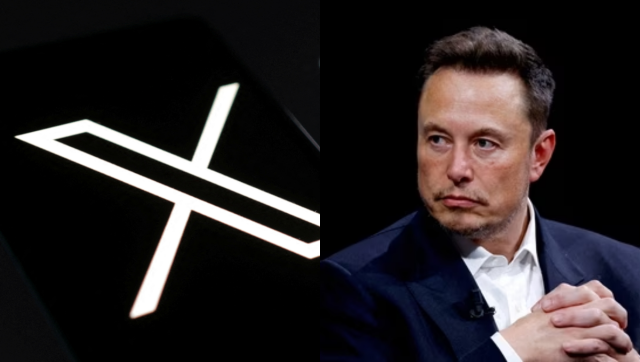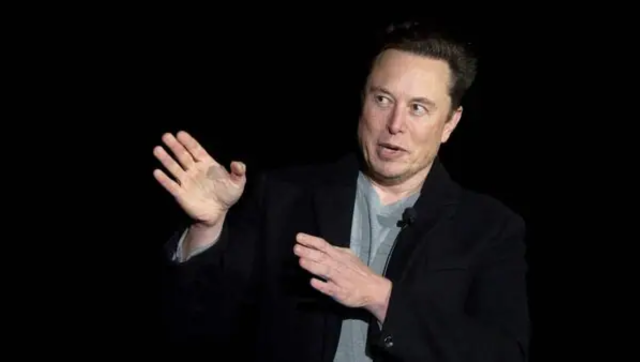Twitter turns eight today.
In Internet terms that already means so been-there done-that. When old CPM warhorses in Kolkata are suddenly getting Twitter accounts and Facebook profiles you know there’s nothing remotely hip or cool about something like Twitter anymore. When the Rev Jesse Jackson came to IIM Calcutta recently he tried to exhort the MBA students to tweet the event. Unfortunately those at the event say as he fumbled with his own smartphone, it was clear that Jackson himself was all talk and no tweet.
For many of us in journalism Twitter has become just another part of our journalistic lives, a tool, a calling card, another ring to bind us all. There’s no doubt Twitter created a space for citizen journalism, something mainstream media had kept promising but never really delivered on. Whether it’s protests in a former Soviet republic or an earthquake in some remote part of the world, Twitter can get to the news quicker with updates and pictures than any CNN camera crew. The Guardian points out that Andy Carvin on NPR sat in the US and used Twitter to develop trusted sources in Egypt and the Middle East during the Arab Spring.
It can also create a drumbeat that cannot be ignored. When the Tarun Tejpal alleged rape story broke it was the rising tweets of indignation that really caused the story to catch fire to the point that it could not be ignored or swept aside as just another sexual misconduct story in a world where we also had Nirbhaya and Shakti Mills. “Deafening silence would have reigned; the rot would have deepened; the accused and the guilty would have hidden behind their celebrity status. But for the power of the social media,” writes Monobina Gupta in DNA .
“The reality is that news no longer breaks; it tweets,” writes Brian Solis in Businessweek . He has a point. The news of Osama bin Laden’s death broke on Twitter. “Some 200 million people learn about breaking events as they happen, triggering a network effect that demonstrates the reach and velocity of social physics," adds Solis.
In 2011 the average person in Twitter was connected to 140 people. That means news can really spread very far very fast.
There’s no doubt Twitter in invaluable as a tool but it still begs the question – has Twitter made us better journalists?
Tweet first, repent later Twitter’s great advantage is that its nimble and quick while mainstream media, even 24x7 news is lumbering and slow. Twitter can get that quick update from a rally or a fire or a riot before anyone else can file a story. And a collation of tweets can actually offer a pretty good snapshot of an event. Of course that speed also means rumours can spread like wildfire as well. When well-meaning Twitterati frantically tweeted out everything they heard coming off the crackly Boston Police Department scanner after the Boston Marathon bombing, they turned a missing Indian American student, Sunil Tripathi, into a prime suspect. NBC News tweeted to say, “Speculation that one of bombing suspects is a missing student is not correct, sources tell @PeteWilliamsNBC.” Of course Tripathi had nothing to do with the bombing leading Omar Abdullah to rue “In spite of the Sunil Tripathi fiasco social media users will still believe in a God given gift to tweet/post first & confirm much later."
We are all pundits now The pressure to be on Twitter is also turning us all into pundits. The reporter who just told the story used to be different from the pundit who weighed in on it. Twitter has thrown us all into the same pot. As a journalist I find it hard to switch back and forth. Despite the caveat of “RT does not mean endorsement” we are all going down the slippery slope of putting our opinions out there for the world to consume. The notion of objectivity was always a little precious and fake. We all bring our biases to work. But it has to be fair. So perhaps it’s not a bad idea for a political journalist, one who has to interview politicians for a living, to keep his or her personal opinion about Narendra Modi or Rahul Gandhi to the dinner table or the office water cooler. This is different from opposing or supporting a particular statement or action of a politician that deserves condemnation or praise.
It’s all about size, baby Twitter as a medium is inherently competitive and in the most base way possible. Size matters. It’s almost the only thing that matters. Who follows you. How many people follow you. And how many followers do they have. A renowned social commentator once got into a Twitter spat with another journo and then suddenly cut it off saying icily he had too few followers for her to bother with. That’s called cutting down to size. Everyone wants to be popular. Everyone wants more followers. I encountered a part-time journalist who sent me a polite message saying he admired my work and would love for us to follow each other. Upon following him, I discovered he was sending the same message to Bill Clinton and Barkha Dutt as well.
Nattering nabobs of negativity Twitter also encourages us to become what Spiro Agnew memorably called “nattering nabobs of negativism” though his speechwriter William Safire actually created the phrase. On Facebook we sound like the happiest people in the world, who bake cakes at home and photograph them, pose with our adorable dogs and spouses, and reach one successful milestone after another. On Facebook we want to be liked. On Twitter we want to be followed. Our Twitter followers want us to entertain them and the easiest way to do that is by being snarky. And let’s not even get into the trolls who twitter-bomb the timeline of any writer with an opinion on a Narendra Modi or a Shah Rukh Khan that they don’t like. Sure, we can block them but sometimes it’s like blocking a plague of locusts one locust at a time.
The lazy journalist’s handy tool But the worst thing about Twitter and journalism is it makes us lazier journalists. And I am as guilty of that as the next journalist. Have you noticed how these days when a celebrity dies we promptly have entire news items composed of tribute tweets from other Bollywood celebrities? Some of those same celebs might have actually had a poignant or meaningful story to share, one that didn’t fit in 140 characters or less, if we had only bothered to ask them. But it’s easier to check the tweets than pick up the phone.
It’s easy to poll our Twitter timeline and do a little Twitter survey instead of going out on the streets and talking to some random people, knowing full well that our Twitter timeline is an echo chamber of like-minded people talking to each other. As The Australian wrote in an editorial “Those reporters who inhabit Twitter - we can think of a legion at The Age and The Sydney Morning Herald - rather than getting out into the suburbs of our great cities and towns invariably get the pulse of the nation completely wrong. It’s a path to ruin.”
A “path to ruin” might be an overly dramatic and we would have to be Luddites to completely reject Twitter as a tool. Even The Australian despite its consternation realises that. It provides a handy Twitter button to help the rest of us tweet out its alarm.
But as Twitter celebrates its birthday it’s good to remind ourselves it is just a tool, not the entire toolbox. There’s a universe outside the Twitter-verse. And it has many characters, good, bad and ugly. Certainly more than 140. Happy Birthday, Twitter.


)




)
)
)
)
)
)
)
)